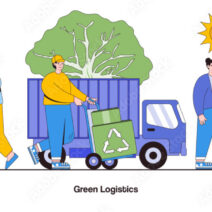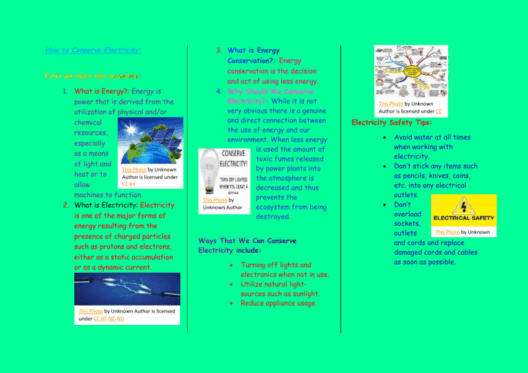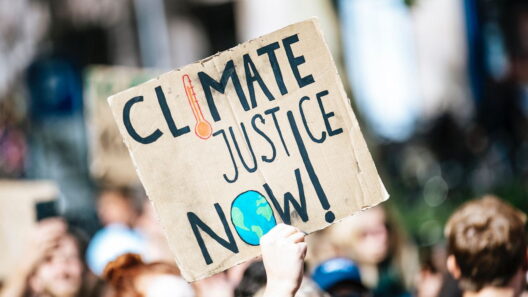Climate Week serves as a clarion call, resonating across borders, beckoning individuals, corporations, and governments to unite under the banner of ecological stewardship. It is a dedicated time when the global community pauses to scrutinize environmental progress, invigorate collective action, and chart the course for sustainable development. Just as the tides ebb and flow with the moon’s gravitational pull, so too does our collective eagerness to address climate change wax and wane. However, during Climate Week, the focus sharpens, creating a fertile ground for discussions that can catalyze change.
One cannot ignore the urgency that pervades the atmosphere during this week. Climate change is not merely an abstract concept, but rather a formidable behemoth that threatens the very fabric of life on Earth. It manifests in rising sea levels, increasingly erratic weather patterns, prolonged droughts, and devastating wildfires. The collective acknowledgment of these dire consequences propels Climate Week into the spotlight. It invites engenders collaboration among all sectors of society, akin to the harmonious notes of a well-tuned orchestra resonating in unison.
The origins of Climate Week can be traced back to the broader global movements aimed at addressing climate crises, including the Paris Agreement and various United Nations initiatives. The week serves as a focal point for summits, panels, and workshops, where eminent scientists and policymakers analyze the present state of the environment while collectively brainstorming innovative strategies for the future. Just like the intricate threads of a spider’s web, these collaborative efforts weave a network of knowledge and action that spans continents.
During Climate Week, cities around the world teem with activities ranging from local clean-up drives to significant international meetings. Each event acts as a drop in an expansive ocean of awareness. The impact may ripple out, fostering a heightened consciousness about climate-related issues. Schools incorporate sustainability into their curricula, businesses re-evaluate their carbon footprints, and communities engage in dialogues about preserving their natural environments. Each of these actions contributes to a larger narrative: that of resilience and transformation.
A significant highlight of Climate Week is the emphasis on youth involvement. Young people, the inheritors of the planet, have taken up the mantle of leadership to confront climate change with vigor and resolve. They remind us that the question of planetary preservation ultimately boils down to the negotiations of the next generation. The passionate voices that ring out during climate strikes echo through the hearts of countless individuals, igniting a renewed commitment to safeguard our shared home. Their ability to galvanize public opinion is akin to the ignition of a flame, spreading warmth and light in the darkness of complacency.
Moreover, virtual engagement has emerged as a hallmark of Climate Week, particularly in the wake of global events that necessitated remote interaction. Webinars, online forums, and social media campaigns have transcended physical barriers, allowing a multiplicity of voices to contribute to climate discourse. This democratization of information empowers individuals worldwide, emphasizing that tangible change can emanate from even the most modest of efforts. As every single sparrow contributes to the sky’s tapestry of flight, so too does every individual have the potential to impact broader climate initiatives.
International collaboration is often at the heart of Climate Week, with various countries presenting their environmental benchmarks, challenges, and aspirations. This collaboration underscores the realization that climate change is a shared predicament; no nation can remain insulated from ecological crises. As countries engage in spirited dialogue, it becomes evident that our destinies are inextricably linked, much like the intertwining roots of a tree that reach out to support one another. To combat climate issues effectively, global solidarity is not just desirable—it’s essential.
Within this mosaic of activities, one cannot overlook the role that technology plays in advancing the agenda of Climate Week. As the world gravitates toward innovation, the advent of clean energy technologies such as solar, wind, and geothermal power presents an optimistic vista. Smart cities are being equipped with sophisticated tools for energy efficiency and waste management, proving that sustainability and urbanization can coexist. These technological advancements serve as the rudder guiding the boat of society towards a sustainable destination.
Despite the optimism that Climate Week generates, it is important to acknowledge that challenges persist. Inequities in resource distribution often exacerbate vulnerabilities among marginalized communities. Thus, as discussions unfold, a focus on equity and justice becomes paramount. It is crucial to ensure that the voices of those most impacted by climate change are not merely an afterthought but central to policy-making and resource allocation. The equitable distribution of environmental benefits is akin to a symphony where every instrument plays a significant part; when one instrument falters, the entire composition is compromised.
In conclusion, Climate Week stands as a pivotal moment for reflection, mobilization, and innovation; it is a testament to humanity’s capacity for change. As the week unfolds annually, it reiterates the imperative to act and inspire collective action toward sustainable outcomes. The resonance of voices united in purpose fortifies our resolve to tackle climate change head-on. Like the diligent hands of a potter molding clay into a masterpiece, it is up to society—governments, businesses, communities, and individuals—to shape a future where our planet thrives. Every small action, every shared commitment, and every innovative solution contributes to a brighter, more sustainable world for generations to come.







